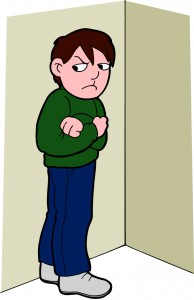Leviticus 19:17–18, Not hate your brother.
The KJV and NKJV translations of this verse are difficult to understand. What is this verse really telling us?
Various Bibles translate this verse differently.

- The NIV reads, “Do not hate your brother in your heart. Rebuke your neighbor frankly so you will not share in his guilt.”
- The NAS has, “You shall not hate your fellow-countryman in your heart; you may surely reprove your neighbor, but shall not incur sin because of him.”
- Finally, the ASET reads, “You shall not hate your brother in your heart; you shall reprove your fellow and do not bear a sin because of him.”
What we learn from these various translations is that when your brother treats you improperly, honestly confront him, or as Yeshua said, “If your brother sins against you, go and tell him his fault between you and him alone” (Matt 18:15). However, if he ignores you and is still prone to vengeance or bearing a grudge against you, don’t become like him and retaliate against him (Lev 19:18). Instead, love him as yourself, or treat him with love as you wish to be treated (ibid.), or else you will incur his sin by becoming like him (v. 17).
Yeshua summed up this godly principle of not giving in to vengeance and retaliation when wronged this way, “But I say unto you, That ye resist not evil: but whosoever shall smite thee on thy right cheek, turn to him the other also” (Matt 5:39). This is loving one’s neighbor as oneself and is the summation of the second half of the Torah (Mark 12:29–31) as summed up by the last six of the ten commandments (Exod 20:12–17).
The bottom line is that exhibiting vengeance, retribution, vindictiveness or bearing a grudge against one’s neighbor demonstrates a lack of self control, is a result of anger and is a form of hatred, which are all works of the flesh resulting in contentions between people (Gal 5:20). These are sinful behaviors and are the opposite of the fruit of the Spirit (Gal 5:22–24), and people who habitually practice these sins along with the other works of the flesh are in danger of not being in the kingdom of Elohim (Gal 5:21).


